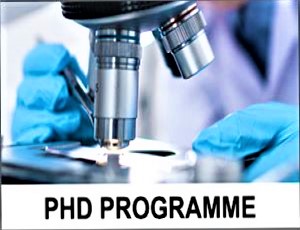
 Widok zawartości stron
Widok zawartości stron
Centrum SOLARIS
 Widok zawartości stron
Widok zawartości stron
 Widok zawartości stron
Widok zawartości stron
Ruszył nabór do Szkoły Doktorskiej Nauk Ścisłych i Przyrodniczych!

Miło nam poinformować, że ruszył nabór do Szkoły Doktorskiej w zakresie nauk biomedycznych. Termin zgłoszeń upływa dnia 8 czerwca 2021 r. Program jest prowadzony przez Jagiellonian Centre for Experimental Therapeutics (JCET), Małopolskie Centrum Biotechnologii (MCB) oraz Narodowe Centrum Promieniowania Synchrotronowego Solaris. Centrum Solaris oferuje dwa miejsca dla doktorantów i cztery tematy badawcze.
Serdecznie zapraszamy do składania aplikacji do Szkoły Doktorskiej Nauk Ścisłych i Przyrodniczych w zakresie nauk biomedycznych.
Program oferuje studia doktorskie z zakresu następujących dziedzin:
Solaris:
Centrum przewiduje dwa miejsca PhD i cztery następujące tematy badawcze:
- Project title: High-pressure studies of the structure of selected proteins in crystal and solution
Prof. dr hab. Maciej Kozak/dr inż. Joanna Sławek.
Project description: The stability of the 3D structure of proteins under extreme conditions (high pressures, high temperatures, extreme pH or ionic strength values, etc.) is still one of the current problems in fundamental research. The stability of the structure of protein complexes, oligomeric or monomeric proteins at high pressures is also of great importance in their industrial use. On the other hand, understanding the processes related to local structural disorder (e.g. changes in secondary structure) as well as long-range changes (dissociation of oligomeric structures or even complete unfolding of the tertiary structure) induced by pressure is important for understanding these phenomena in a broader (fundamental) context. It is particularly interesting to link these changes, induced by high pressure, with ranges of enzymatic activity or mechanisms of the misfolding of protein structures associated with neurodegenerative diseases. The aim of this project is to investigate the influence of high pressure (even up to 2 GPa) on the spatial structure of model proteins.
- Project title: Development of GI-SAXS stage for SOLCRYS beamline and studies of model lipid-metal nanoparticle systems using SAXS and XAS
Prof. dr hab. Maciej Kozak/ dr inż. Tomasz Kołodziej.
Project description: Metallic nanoparticles are currently widely used in biology and medicine as components of drug delivery systems or bionanosensors, contrast systems in medical imaging or as enhancers in radiotherapy. In order to improve biocompatibility, nanoparticles are integrated into lipid systems (liposomes, multilamellar structures, etc.). However, the incorporation of nanoparticles induces structural changes in the lipid matrix. The aim of this project is to investigate the structure and organization of lipid-metal nanoparticle systems, deposited on selected substrates, using GI-SAXS and analysis of interactions between metal core and lipid bilayers using a combination of SAXS, XAS, and complementary methods.
- Project title: Neural Networks for cancer detection based on chemical imaging
dr hab. Tomasz P. Wrobel.
Project description: This project focuses on the development of proper Neural Networks with IR imaging as a tool for cancer understanding and diagnosis of cancer. The aim is to create label-free, non-destructive, and highly accurate comprehensive histopathological models of pancreatic and breast cancers. IR imaging at the tissue level offers a wealth of information and proper processing is crucial for creating robust classification models, which can be relevant for the clinician. The specific goals will include FT-IR data acquisition on the newly built SOLAIR beamline, creation of Neural Networks models, and optimization in terms of accuracy vs. robustness.
- Project title: Nanoscale chemical imaging of selected biomedical samples
dr hab. Tomasz P. Wrobel.
Project description: This project focuses on creating appropriate experimental approaches for biomedical sample preparation and measurements in the nanoscale. AFM-based IR imaging is a new sub-field of IR imaging and presents new challenges for single cells or biomaterials characterization. This project will be primarily focused on developing a protocol for sample handling and measurements. Once this is established a series of cell lines representative of civilization diseases will be studied along with the effects of drugs. The specific goals will include AFM-IR data acquisition on the newly built SOLAIR beamline, cell cultures, and data handling.
JCET:
- biomedycyna śródbłonka, w tym farmakologia eksperymentalna
- metabolizm leków naczyniowych/ farmakokinetyka
- fizjologia, patofizjologia, biochemia, analityka i obrazowanie biochemiczne śródbłonka
MCB:
- bioinformatyka
- biologia rozwoju
- biologia strukturalna
- obrazowanie chemiczne
- genomika drobnoustrojów
- systemy komórkowe i modele komórkowe, w tym komórki macierzyste
- bionanotechnologia i bionanochemia
Osoby, które zakwalifikują się do programu będą mogły podjąć studia w jednej z trzech powyższych międzynarodowych i multidyscyplinarynych instytucji w Krakowie.
Termin zgłoszeń upływa 8 czerwca 2021 r.
Szczegóły dotyczące sposobu aplikacji znajdziesz klikając w aktywny link.
Więcej informacji na temat programu znajdziesz klikając w aktywny link.

